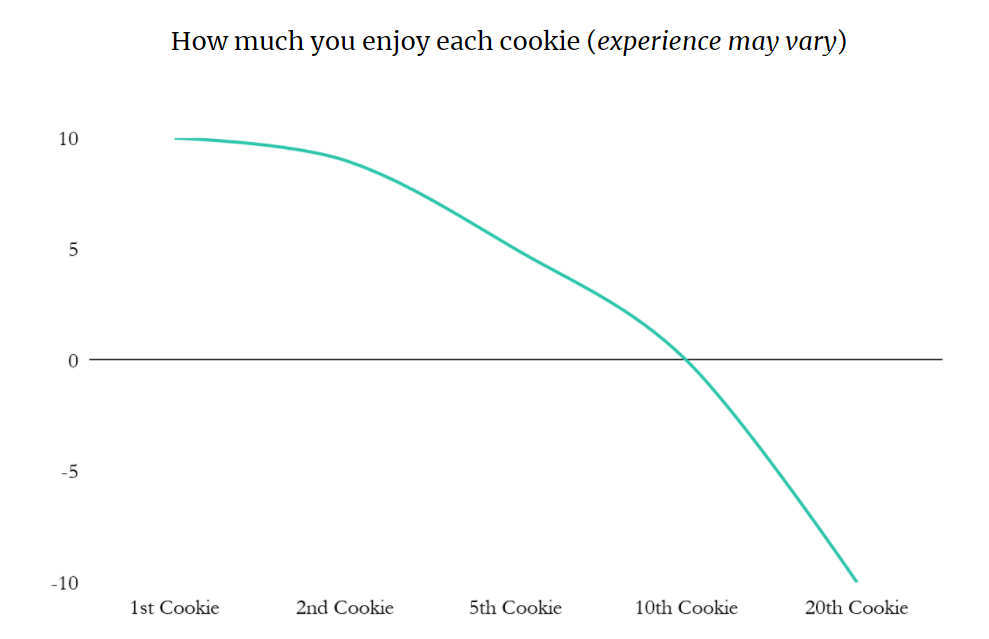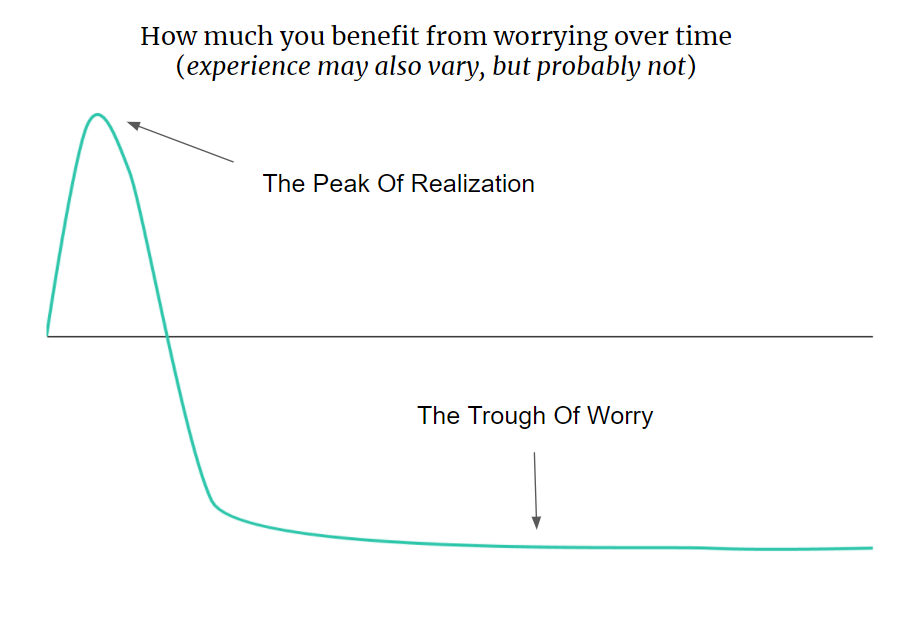In the field of economics there is a widely known concept known as the utility equation. Created by Daniel Bernoulli, it states that people will keep on making decisions as long as it increases their utility (a.k.a. you receive personal satisfaction and/or the decision provides some type of benefit).
For example, let’s say you have a plate of cookies in front of you and you’re fairly hungry. Not starving, but you’re hungry.
When you eat the 1st cookie, it’s one of the best things you’ve ever tasted in the world. You gain lots of utility.
When you eat the 2nd cookie, it’s pretty great, but it’s just not as good as the first one. You gain some utility, but not as much.
You continue eating cookies until you finally get to the point where you don’t want any more. Maybe you’re full, maybe you want to avoid the extra calories. Whatever the reason is, you absolutely do not want another single cookie.
Graphically, your experience would look something like this:

Right around cookie #10 you don’t care anymore. You could eat it, you could not, But after cookie #10, that is it. You absolutely do not want to eat any more cookies.
This equation is pretty straightforward since, at a clear point in time, you know for certain that you won’t gain anything by eating anymore. So you stop. You stop because there’s an immediate link between the benefit (or lack thereof) of eating another cookie.
However, this isn’t so straightforward for other things in life, such as worrying. When you begin to worry, there isn’t a direct link between you worrying and the benefit you get from worrying.
Worry exists for really only one reason: To make your brain focus on a specific task. It might be about the test you have coming up, the important in-person interview, or a public speech you’re being forced to give at a wedding.
Regardless of what you’re brain is demanding you concentrate on, you only get so much benefit from spending your precious time thinking about it. Graphically, it looks something like this:

Notice the steep drop off after the initial stages of worry. This happens because there is only one thing to be gained from worrying, and that is for you to concentrate on the root cause of the worry, a.k.a. “The Peak Of Realization”. At this peak, your brain has done its job and directed its attention to what you need to focus on (even if you can only address the problem at a later point in time).
After you pass this peak, you’ll very quickly enter “The Trough Of Worry”. In the Trough Of Worry, you gain nothing by continuing to think about the problem. In fact, you’ll likely lose something, whether it be time, sleep, or your hair.
Over worrying exists because you either can’t, or won’t take action. Therefore when you realize you are over worrying, you should ask yourself two questions (if it helps, say it out loud):
- Is there anything I can do to fix this?
- If not, then why am I worrying about it?
These two questions will help reset your mind and have it focus on what you can control, and what you can’t control. They allow you to take a step back and rationally think about the problem.
While this is a drastic oversimplification of the concept of worry, this is the best mental model I have found to put my mind at ease when I find myself over worrying. Snapping yourself back to normal may not always be easy, but if you ask yourself the two questions above, it will at least help make a difference.